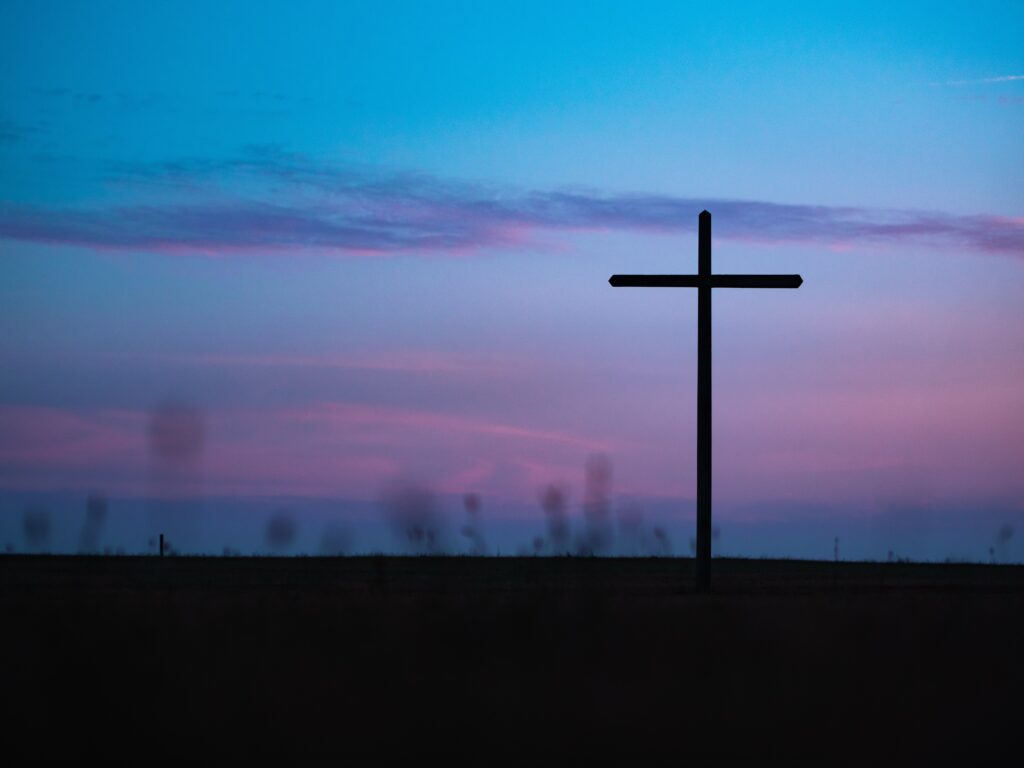
We will explore how Christians practice observing the Sabbath, highlighting our commitment to honoring all ten of God’s commandments (Exodus 20) as spiritual descendants of Israel. In a future discussions, we will delve deeper into Sabbath-related topics, addressing objections and providing thoughtful responses for those who uphold Sabbath-keeping principles. Alongside this, we will offer supplementary informative material. This introduction is designed for beginners, serving as a foundational guide to understanding the significance of Sabbath observance in Christianity.
Now this is a answer from a theological perspective and doesn’t go fully into depth on the early Christians beliefs on the Sabbath historically (however, this article will touch on those topics briefly). This article also presupposes trinitarian doctrine when you read.
The meaning of Sabbath שָׁבַת is to cease, desist, rest
All translations will be in the ESV unless stated otherwise.
The True Sabbath of God
God’s rest was established after he finished creating and he rested from creating, because all of it was finished and good in his sight.
- “Thus the heavens and the earth were finished, and all the host of them. 2 And on the seventh day God finished his work that he had done, and he rested on the seventh day from all his work that he had done. 3 So God blessed the seventh day and made it holy, because on it God rested from all his work that he had done in creation.” – Genesis 2:1-3
Here, “rest” doesn’t imply God taking a break, lounging with a cup of coffee. Instead, the text clarifies its meaning: God’s rest signifies the completion of creation. He no longer needs to create because everything has been finished and declared good on each preceding day, in correlation to the seventh day. Moreover, every day except the seventh is marked by a morning and an evening, signifying a conclusion to that day. The seventh day hasn’t ended for God, meaning every day is the Sabbath for God. God blessed the seventh day and MADE IT HOLY.
Israel’s Sabbath Is a Shadow of God’s Sabbath
The Hebrews were commanded by God to observe a Sabbath, which was ordained for the nation of Israel to uphold.
- “8 “Remember the Sabbath day, to keep it holy. 9 Six days you shall labor, and do all your work, 10 but the seventh day is a Sabbath to the LORD your God. On it you shall not do any work, you, or your son, or your daughter, your male servant, or your female servant, or your livestock, or the sojourner who is within your gates. 11 For in six days the LORD made heaven and earth, the sea, and all that is in them, and rested on the seventh day. Therefore the LORD blessed the Sabbath day and MADE IT HOLY.” – Exodus 20:8-11
The command given by God to the Hebrews regarding their Sabbath mirrors God’s own Sabbath day. God instructs them to “Remember the Sabbath day, to keep it holy,” referencing God’s Sabbath mentioned in Genesis 2:1-3. He reaffirms the purpose of giving them a Sabbath in verse 11 because he rested, the Israelites too can rest. This rest, however, is not in the same manner as God’s rest mentioned in verses 9-10, but rather serves as a model or shadow of the TRUE REST, which is God’s. Again the Sabbath is mentioned in Exodus 31:12-17. Note that God has Sabbaths (Plural).
Another detail is that the Jews believed God was not bound by their Sabbath since He created it and continually worked to sustain the universe.
- “12 And the LORD said to Moses, 13 “You are to speak to the people of Israel and say, ‘Above all you shall keep my Sabbaths, for this is a sign between me and you throughout your generations, that you may know that I, the LORD, sanctify you. 14 You shall keep the Sabbath, because it is holy for you. Everyone who profanes it shall be put to death. Whoever does any work on it, that soul shall be cut off from among his people. 15 Six days shall work be done, but the seventh day is a Sabbath of solemn rest, holy to the LORD. Whoever does any work on the Sabbath day shall be put to death. 16 Therefore the people of Israel shall keep the Sabbath, observing the Sabbath throughout their generations, as a covenant forever. 17 It is a sign forever between me and the people of Israel that in six days the LORD made heaven and earth, and on the seventh day he rested and was refreshed.’” – Exodus 31:12-17 (verse 13, Lexicon, interlinear)
Not only does God reiterate the commandment He gave to the Hebrews in Exodus 20:8-11, but He also clarifies that there are multiple Sabbaths, as indicated by the plural form of the word “Sabbath” in verse 13. The Hebrew word for Sabbath, “שַׁבְּתֹתַ֖י” (shabbətōtay), is formed by adding two suffixes, “-ot” and “-ay,” to the original singular form “שַׁבָּת” (Shabbat). The Sabbaths belong to God and the one he gave to the Israelites to follow. For the Hebrews to observe God’s Sabbath they had to follow their Sabbath. They could not enter in God’s Sabbath because of their unbelief and we will get into that now.
Jesus Christ’s Rest Is YHWH’s Rest
God’s Sabbath v.s Israels Sabbath
- “25 At that time Jesus answered and said, “I thank You, Father, Lord of heaven and earth, that You have hidden these things from the wise and prudent and have revealed them to babes. 26 Even so, Father, for so it seemed good in Your sight. 27 ALL THINGS have been delivered to Me by My Father, and no one knows the Son except the Father. Nor does anyone know the Father except the Son, and the one to whom the Son wills to reveal Him. 28 Come to Me, all you who labor and are heavy laden, and I will give you rest. 29 Take My yoke upon you and learn from Me, for I am gentle and lowly in heart, and you will find rest for your souls. 30 For My yoke is easy and My burden is light.” – Matthew 11:25-30 NKJV
Jesus declares that all things have been entrusted to him by his Father, and he shares an intimate, personal knowledge with the Father. This depth of knowing signifies a profound relationship, as emphasized by the Greek word “epiginṓskō,” which:
1909 /epí, “on, fitting” which intensifies 1097 /ginṓskō, “know through personal relationship.“
When Jesus asserts that “no one knows” except him, he highlights the exclusivity of his relationship with the Father. This establishes Jesus on equal footing with the Father, indicating their mutual understanding and ownership of all things (John 16:14-15). The Father God and the Son of God bear witness to each other (John 8:17-18), solidifying their divine unity. Understanding this relationship is crucial for what follows. Jesus issues a command in verses 28-30, inviting all who are weary and burdened to come to him for rest, promising rest for their souls or lives. This statement by Jesus is spiritual in nature, conditioned upon individuals choosing to approach him. By doing so, believers find peace, fulfilling Jesus’ promise (John 14:26-27). By having faith in the Jesus Christ you have now entered into the rest of God.
- “25 At that time Jesus answered and said, “I thank You, Father, Lord of heaven and earth, that You have hidden these things from the wise and prudent and have revealed them to babes. 26 Even so, Father, for so it seemed good in Your sight. 27 ALL THINGS have been delivered to Me by My Father, and no one knows the Son except the Father. Nor does anyone know the Father except the Son, and the one to whom the Son wills to reveal Him. 28 Come to Me, all you who labor and are heavy laden, and I will give you rest. 29 Take My yoke upon you and learn from Me, for I am gentle and lowly in heart, and you will find rest for your souls. 30 For My yoke is easy and My burden is light.” – Matthew 11:25-30 NKJV
- “For the Son of Man is lord of the Sabbath.” – Matthew 12:8 (cf. Mark 2:28; Luke 6:5)
Note in Matthew 12:8; Mark 2:28 & Luke 6:5 Jesus is claiming to be lord of the Sabbath here, because the only lord of the Sabbath is God. You never see anyone in old or new testament, ever being called lord of the Sabbath but Jesus and God. Meaning they are over the Sabbath, the only one that can be over the Sabbath is God. In John 5 we see Jesus justifying why it is okay for him to work (to do miracles) on the Sabbath after healing and he makes himself equal with God.
- “16 And this was why the Jews were persecuting Jesus, because he was doing these things on the Sabbath. 17 But Jesus answered them, “My Father is working until now, and I am working. 18 This was why the Jews were seeking all the more to kill him, because not only was he breaking the Sabbath, but he was even calling God his own Father, making himself equal with God. 19 So Jesus said to them, “Truly, truly, I say to you, the Son can do nothing of his own accord, but only what he sees the Father doing. For whatever the Father does, that the Son does likewise.”
With all that Jesus says if you read on to verse 29 he says: He does nothing on His own but only what He sees the Father doing (v. 19), does whatever the Father does (v. 19), gives life to whom He wills (v. 21), has been given all judgment (v. 22), must be honored as the Father is honored (v. 23), grants eternal life to those who hear His word and believe the Father (v. 24), calls the dead to life by His voice (v. 25), has life in Himself as granted by the Father (v. 26), has authority to execute judgment as the Son of Man (v. 27), and will call all from their tombs to resurrection, either to life or judgment (vv. 28–29).
Jesus makes it clear because, as the Son of God on earth, He demonstrates divine authority by doing only what the Father does, granting life, executing judgment, and commanding the resurrection of the dead, all of which require the power and honor that belong to God alone, while not being the Father, but the Son.
In Christ Jesus We Enter God’s Rest
“7 Therefore, as the Holy Spirit says, “Today, if you hear his voice, 8 do not harden your hearts as in the rebellion, on the day of testing in the wilderness, 9 where your fathers put me to the test and saw my works for forty years. 10 Therefore I was provoked with that generation, and said, ‘They always go astray in their heart; they have not known my ways.’ 11 As I swore in my wrath, ‘They shall not enter my rest.’” 12 Take care, brothers, lest there be in any of you an evil, unbelieving heart, leading you to fall away from the living God. 13 But exhort one another every day, as long as it is called “today,” that none of you may be hardened by the deceitfulness of sin. 14 For we have come to share in Christ, if indeed we hold our original confidence firm to the end. 15 As it is said, “Today, if you hear his voice, do not harden your hearts as in the rebellion.” – Hebrews 3:7-15
From verses 7-11, the writer of Hebrews is believed to be the Apostle Paul. Quotes Psalm 95:7-11, which was spoken by the Holy Spirit. This shows the Holy Spirit is Yahweh God by whom the Prophet David spoke (2 Samuel 23:1-3). The Quotation references the time of Moses in the wilderness with the Israelites for 40 years. Here is the direct passage.
- 7 For he is our God, and we are the people of his pasture, and the sheep of his hand. Today, if you hear his voice, 8 do not harden your hearts, as at Meribah, as on the day at Massah in the wilderness, 9 when your fathers put me to the test and put me to the proof, though they had seen my work. 10 For forty years I loathed that generation and said, “They are a people who go astray in their heart, and they have not known my ways.” 11 Therefore I swore in my wrath, “They shall not enter my rest.” – Psalm 95:7-11 (NKJV)
The Holy Spirit, who is Yahweh God, declares, “They shall not enter my rest.” This signifies that they had the opportunity to enter God’s rest, but their disobedience and lack of faith provoked His wrath, leading to their exclusion. Paul concludes…
- “16 For who were those who heard and yet rebelled? Was it not all those who left Egypt led by Moses? 17 And with whom was he provoked for forty years? Was it not with those who sinned, whose bodies fell in the wilderness? 18 And to whom did he swear that they would NOT enter his rest, but to those who were disobedient? 19 So we see that they were UNABLE TO ENTER BECAUSE OF UNBELIF.” – Hebrews 3:16-18
Paul emphasizes that the Israelites, led by Moses, were unable to enter God’s rest due to their unbelief. This highlights an ongoing opportunity to enter into God’s rest every day. Paul concludes in the next chapter that we enter God’s rest through Jesus Christ.
- “1 Therefore, while the promise of entering his rest still stands, let us fear lest any of you should seem to have failed to reach it. 2 For good news came to us just as to them, but the message they heard did not benefit them, because they were not united by faith with those who listened. 3 For we who have believed enter that rest, as he has said, “As I swore in my wrath, ‘They shall not enter my rest,’” (Psalm 95:11) although his works were finished from the foundation of the world. 4 For he has somewhere spoken of the seventh day in this way: “And God rested on the seventh day from all his works.” (Genesis 2:2) 5 And again in this passage he said, “They shall not enter my rest.” (Psalm 95:11) 6 Since therefore it remains for some to enter it, and those who formerly received the good news failed to enter because of disobedience, 7 again he appoints a certain day, “Today,” (Psalm 95:7) saying through David so long afterward, in the words already quoted, “Today, if you hear his voice, do not harden your hearts.” – Hebrews 4:1-7
The passage in Hebrews 4:1-7 warns against unbelief, and emphasizes entering God’s rest through faith in Jesus Christ when he says “for we have believed enter that rest.” He draws parallels between the Israelites’ failure to enter the Promised Land due to disobedience and believers’ opportunity to enter God’s rest. Now it is in Christ that we enter his rest if we come to him as stated by Jesus in Matthew 11:28-29. Jesus is the “good news” (verse 2) as mentioned to be Jesus Christ in Luke 4:18-21 (cf. Isaiah 61:1-2) & 1 Peter 1:24-25 (cf. Isaiah 40:7-8).
- “8 For if Joshua had given them rest, God would not have spoken of another day later on. 9 So then, there remains a Sabbath rest for the people of God, 10 for whoever has entered God’s rest has also rested from his works as God did from his. 11 Let us therefore strive to enter that rest, so that no one may fall by the same sort of disobedience.” – Hebrews 4:8-11
The author suggests that if Joshua had fully fulfilled God’s promise of rest for the Israelites, there wouldn’t be mention of another day of rest later, implying that Joshua’s rest in the Promised Land was temporary and incomplete. Hebrews 4:8-11 emphasizes the concept of Sabbath rest, highlighting its spiritual nature found through faith in Jesus Christ, contrasting it with the temporary rest provided by Joshua. Believers are urged to cease relying on their works for salvation and instead strive to enter God’s rest through faith and obedience, avoiding the disobedience that hindered the Israelites from entering the Promised Land.
- 12 For the word of God is living and active, sharper than any two-edged sword, piercing to the division of soul and of spirit, of joints and of marrow, and discerning the thoughts and intentions of the heart. 13 And no creature is hidden from his sight, but all are naked and exposed to the eyes of him to whom we must give account.” – Hebrews 4:12-13
God’s word is living and active, as stated in verse 12. He sees everything and will judge His people. We understand this passage refers to Jesus Christ because it describes God’s word as “living” and “discerning the thoughts and intentions of the heart.” This is Jesus Christ, the living Word of God (John 1:1-18, Revelation 19:13, ). Verse 13 reinforces that nothing is hidden from His sight, highlighting Jesus’ omnipotence in seeing even the hidden things of the heart. His people will give an account to Him for all that belongs to Him.
- 14 Since then we have a great high priest who has passed through the heavens, Jesus, the Son of God, let us hold fast our confession. 15 For we do not have a high priest who is unable to sympathize with our weaknesses, but one who in every respect has been tempted as we are, yet without sin. 16 Let us then with confidence draw near to the throne of grace, that we may receive mercy and find grace to help in time of need.
Jesus being the great high priest shows his high rule of being the one who intercedes for us on our behalf before God the Father (1 Timothy 2:4-6).
In conclusion, the comprehensive exploration of Sabbath rest in Christian theology, encompassing Matthew 11:25-30, Genesis 2:1-3, Exodus 20:8-11; 31:12-17, and Hebrews 3:7-19; 4:1-16, underscores the spiritual significance of Sabbath observance. It emphasizes that Jesus Christ there is salvation in him and rest. Jesus offers believers a deeper, spiritual rest than the physical rest experienced in the Old Testament under Moses and Joshua. The passages highlight the importance of faith and obedience in entering into God’s rest, contrasting it with the disobedience that prevented the Israelites from entering the Promised Land. Overall, it provides a foundational understanding of Sabbath rest in Christianity, urging believers to rely on Jesus Christ for spiritual renewal and rest. Forever observing the Sabbath in Jesus Christ everyday!
Further Research





